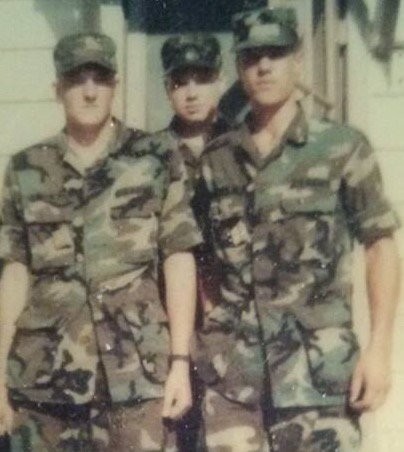Culture
From Army Boot Camp to Coding Boot Camp: Lessons from a Veteran 2U Exec
Written by Molly Forman on May 26, 2020
Related content: Leadership

Prior to becoming the accomplished educational leader he is today, Greg Calverase enlisted in the Army. He grew up surrounded by career Army officers—both his father and grandfather served—and after high school, Greg followed in their footsteps.
Greg enlisted for two years for two primary reasons. First, to earn money for college through the Army GI Bill. Second, to help bolster his application to the university he was considering attending, West Point.
At the time, Greg intended to commit his life to the military, and he was taking all the necessary steps to accomplish his goal. But after completing basic training and advanced individual training and finishing up his enlistment at the United States Military Academy Preparatory School (USMAPS), Greg realized education was his passion.
Now, Greg is managing director of 2U’s boot camp business. He’s using the skills and lessons he learned in the Army and applying them daily to his role as an executive. In light of Military Appreciation Month, we asked Greg to share how his experience in the Army impacts the way he leads at 2U and why he values veterans. Here’s what he shared.
How did your experience in the Army play into your growth as a leader? What skills have you adopted from the military and applied to how you lead at 2U?
Much of the training I received in the Army was about leading (and following). But leaders are only as strong as the teams on which they depend. Leaders rarely get a job done without the efforts of a talented team. That team is strengthened by the diversity of people and skills who make up that team.
Early in my career, I learned to surround myself with people who brought unique qualities to my team rather than hiring people who were like me. I also received advice that I still follow to this day: “make yourself obsolete.” The day you’re not needed on a team is an opportunity to move into something new and to enable a growing leader to take charge.
Several veterans work at 2U. Why do you believe it’s important for companies to invest in veteran talent? What unique value do they bring to a team?
In the boot camp business, we call the programs “boot camps” because they’re intense experiences. People in our programs are juggling rigorous, skills-based training while also managing their day-to-day lives. Since the average age of students in the boot camps we power is 32, that often means they have full-time jobs, families, and other obligations. The ability to balance is part of what makes boot camp graduates attractive to employers and, I would argue, it is one of the things that make veterans a good fit for any company. These are people who have overcome incredibly tough physical and mental challenges.
At 2U, one of our guiding principles is “make service your mission.” What does that mean to you?
I often have people who thank me for my military service. While I appreciate them doing so, service comes in lots of different forms. I sometimes wonder if we pay enough attention to all the people who provide service that also deserve our thanks, including all of the educators who care deeply about providing access to high-quality education in whatever form that comes. In these crazy times in which we find ourselves, any essential employee deserves our thanks for their service.
What advice do you have for veterans who are transitioning to a civilian career today? Any words of wisdom?
There’s a piece of military wisdom that says, “No plan survives first contact with the enemy.” I think that’s probably true of life in general, even when no enemies are involved. But I believe that veterans can apply the flexibility and the quick thinking that are required in the military to any situation. It can be a very zen way of thinking if you come to expect the unexpected and can simply adapt.
Latest.
Learn more about us.
At 2U, we’re on a mission—to eliminate the back row in higher education and help universities thrive in the digital age. To learn more about who we are and what we do, follow the links below.